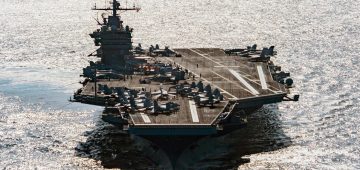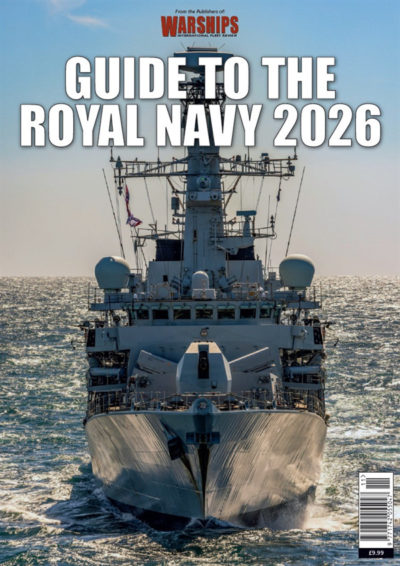By any measure, the Royal Navy is in crisis. It is a national scandal that an organisation so important to the UK is in such a pickle, with barely a whisper from politicians or the media about its serious decline and imbalance. The headline fact is the RN has fallen to a sub-critical mass.
Previously when the Royal Navy fell so low it could at least rely upon a cadre of officers who had experience of war to maximise the utility and application of sparse resources. It is now 35 years since the Falklands War – when the RN could field 60 frigates and destroyers – yet it continues to behave as though it were three or four times bigger than its present size.
It rotates senior officers through appointments every two or three years, spreading expertise ever thinner, like butter on bread at a church fete. Recently it has made its problems worse by introducing the substantive rank of Commodore. This used to be a non-substantive rank, only used temporarily for certain Captains in charge of task groups, for example (as was the case in 1991 during Operation Desert Shield/Desert Storm).
The Navy should take back the flexibility it used to have when Captains served nine years and then were up or out. Next, it should scrupulously study its flag list and carefully choose some admirals who might serve several years in key appointments.
This is what happened when it introduced Polaris, and did often enough when choosing the Controller of Navy, and also successfully in the time of Fisher and Beatty a century ago. The Commodore rank ought to be abolished, except for rare non-substantive roles. The RN should keep its admirals longer in post.
The Navy also needs to get firmly behind the wheel of its future equipment programme and resist the drive to let other branches of the armed forces decide key aspects just because they appear to have expertise in the air and on land. Air operations at sea and also projecting troops from the sea are hard won skills. They can only be preserved if the Navy is allowed to carry out such jobs, which it has done superbly for many decades. The RAF should not be sticking its snout in the carrier trough and deciding how things shape up. There need to be clear lines of reporting on new ships, submarines and aircraft to the First Sea Lord and his Service experts, who know what works best in naval warfare. After all, lives and the defence of the nation are at stake.
It is often said that a camel is a horse designed by a committee – and in the case of the carriers, the committee has designed a camel with two humps. As discussed by James Galvin elsewhere not only in the April 2016 edition, but also on this web site, it is extraordinary when a First Sea Lord does not know who took certain decisions critical to the aircraft carrier programme.
As with the Type 45s, there are big question marks hanging over the new carriers, such as their all-electric power, alleged excessive top weight, less than 30 knots top speed and fears about not enough aircraft to generate the right sortie rate.

A major step forward, therefore, would be bringing to an end the syndicalisation of responsibility within the Navy, and the era of apparatchiks who speak to each other – and, what’s worse, to the world – in near-incomprehensible management-speak.
All-of-one-company is ingrained in the Navy’s ethos but too often today corporateness and management-speak are used to spread (or to deny) responsibility for events, when, actually, heads should roll. The ‘Cornwall 15’ incident of 2007 is a case in point. No heads rolled after that disgraceful and shame-inducing episode, possibly because the fighting edge and ethos of the Navy had been allowed to go dull. Not so in the Australian fleet which had a similar incident around the same time but responded very robustly. The recent incident when the Iranians detained US Navy sailors and their patrol boats shows the USN may be suffering similar problems to the RN nine years ago.
In recent times Odin has heard senior admirals read speeches to audiences composed nearly entirely of naval officers. Anyone and everyone of flag rank ought to be capable of speaking from the heart without reference to notes. What they say – to both internal and external audiences – should not be so ‘corporate’, it may as well be Martian.
The Navy is not only sub-critical in its manpower and officer cadre, but the crisis that it has reached is also epitomised by its force levels and fleet structure. The fleet amounts to less than a single battle group. The new carriers will not be available for several more years. The Type 45s suffer from the aforementioned well-publicised power problems. If rumours are true, two nuclear-powered attack submarines (SSNs) at most are available for operations.
Then there is the matter of instilling pride in the Navy as an armed force (not a glorified aid deliverer). Naming the new Type 26 frigate the Black Swan Class would be a fine idea, recalling from history a breed of ships that served so well in many roles, and in different theatres, during WW2. It’s better than calling them Global Combat Ships. The Navy must also see that the cost of the Type 26 is not driven through the roof by design changes and bureaucratic processes, so that only eight ships can ever be afforded.
Indeed, it is surely time to appoint a Chief Executive Type 26 (CE26) at two star level? This person should be responsible over the next five or more years for delivering this new maid of all works.
Since someone on the Naval Staff has been reading his or her history to come up with the Black Swan name, the RN, individually and corporately, should learn its history. At least one part of the Navy – the Royal Marines – issues a concise Corps history to recruits and they are expected to learn it. Why not the Royal Navy too? Staff histories of recent events are published by the Royal Australian Navy (RAN) and the Royal Canadian Navy (RCN) so why is the RN unable to do this?
If any other navy had a brand name as strong as the RN and a history as long, it would be proud to shout about it. The RAF and the Army never fail to commemorate and celebrate milestone battles, but with the exception of Trafalgar, Jutland and the Battle of the Atlantic, the RN rarely makes a big show of its many other important victories. Why is naval history no longer taught in a sustained and deep fashion at Dartmouth?

A fourth step is for the Royal Navy to learn its own history and be proud of its past and embrace it. If it doesn’t know where it comes from it will not be able to chart a course into the future with any confidence. Maybe, if the Navy can take these steps, it will weather the current crisis. If the Royal Navy also learns to treat its many friends with more respect instead of ignoring them and cold-shouldering its best and most faithful advocates, then the broader general public will give a damn about it.






Comments
Sorry, comments are closed for this item